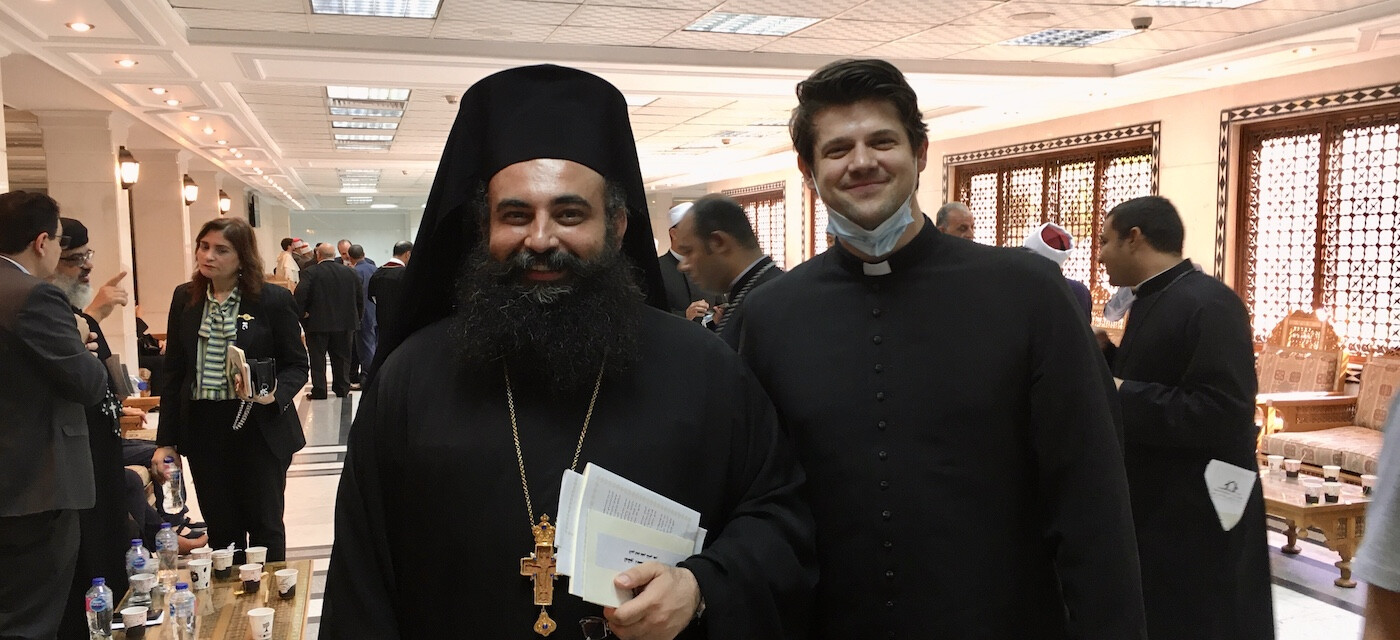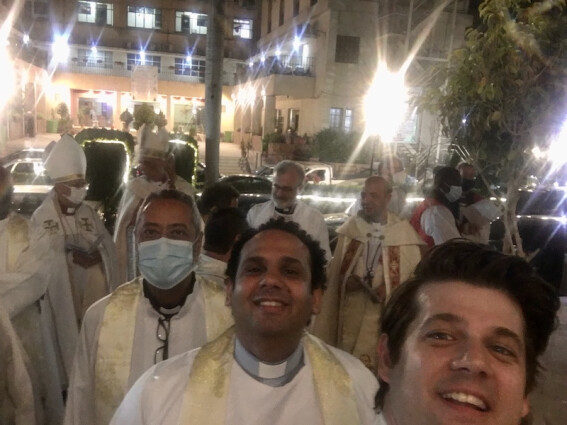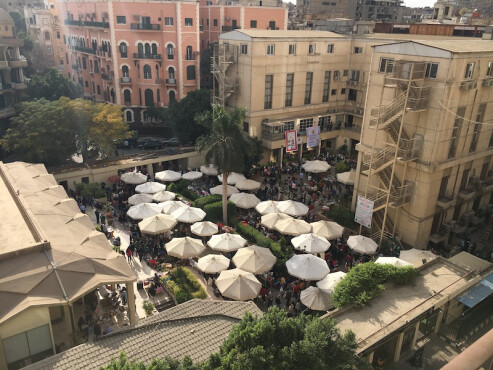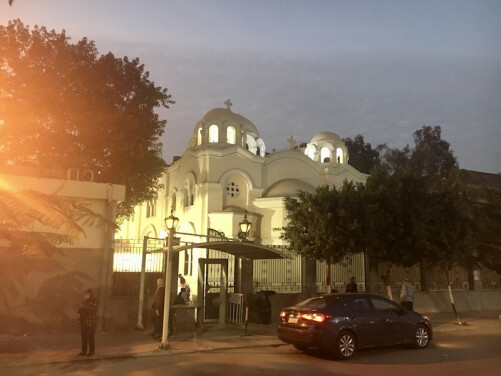Discussions
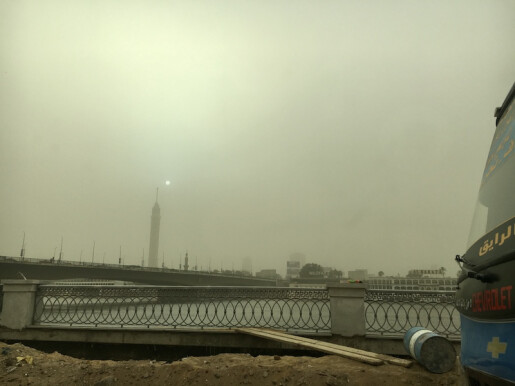
On Monday mornings at St. John’s, we have Morning Prayer and a Bible study for the church staff. The staff includes the church’s office assistant as well as our security guards and groundskeepers. Most of the staff are from Sudan and South Sudan, so sometimes their questions about Scripture are very much unique to Africa, a ministerial setting I am still learning about.
In my short experience, African congregations tend to be almost preoccupied with questions about marriage and family life. In short, their questions are less existential, as ours tend to be, but about how to live, and sometimes within its more severe restraints. These questions usually assume a set of moral assumptions different from the one we interact with and, indeed, have come to understand and experience ourselves in. Some have broadly described this, non-Western moral background as a “shame and honor society,” in contrast to our, “guilt-based society.” This doesn’t mean that people do not ask questions about “right” and “wrong” just as people in the West do experience shame. But, for example, when someone in the West asks, “Is it wrong not to have children?” They are typically asking if it is morally permissible to use birth control or not. In Africa, however, the question has usually been put to me in different terms. This week I was asked: “Is it shameful not to have children? This person was not asking if it was okay for a Christian to use birth control, but, quite differently, if barrenness and childlessness are considered shameful. This question, sure, assumes a different normative access to medical science. More importantly, though, they are asking a different sort of question, too, one about how our mortality is to be received and perceived. In this particular example, they are asking in what way God receives a life that society already considers to be without blessing, that is, disgraced.
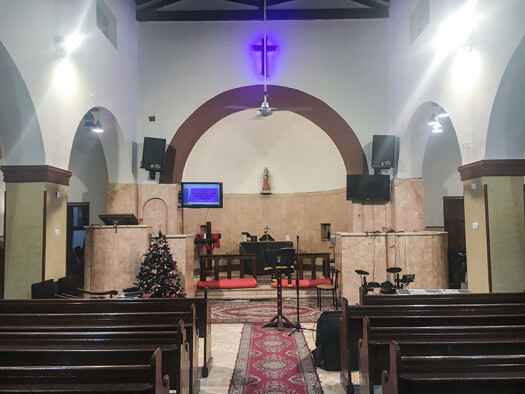
The question about childless women came out of a discussion we had this week about the Sadducees’ attempt to test Jesus in Matthew 22:23-33 by asking him a question about the future marital status of a particular childless widow. We talked about how Jesus responded to them; indeed, how Jesus refused to accept their question’s terms, especially their assumption that God does not know about childless women: “have you not read what was said to you by God, ‘I am the God of Abraham, the God of Isaac, and the God of Jacob’?” We talked about what it means for Jesus to say that “He is God not of the dead, but of the living.” Nevertheless, the conversation kept coming back around to which husband the widow would be married to in the Kingdom of heaven. They were interested in this question because the Quran teaches that when a faithful male enters paradise he will receive some unspecified number of wives, houris. This developed into a larger discussion about whether or not Muslims and Christians believe in the same God. This is an important conversation for them because they do not just have a few Muslim friends. We’re in Egypt after all. They wanted to know what it meant for them to pray and talk about God with Muslims who likewise confirm that God there is one God and that God is One. This meant that my, rather abstract, qualification about how we know how God is “one” (The Holy Trinity) was somewhat off-topic! So, I was grateful that the other clergy, Fr. Osama and Fr. Emmanuel, were also present to join our conversation to speak to this issue in a more intimate way, which is much more close-to-home than it is for me. After Bible study, Fr. Osama and Fr. Emmanuel met to discuss events that we were doing over the course of the month. Advent and Christmas are full of events, but the secular new year is also celebrated in the church. Fr. Osama was only mildly amused by my reminder that we had already celebrated the new year on Advent One. We had planning to do. We had a wonderful conversation about some challenges our church is facing and together envisioned what the future could look like. I feel very honored to be welcomed into such conversations with the likes of them.
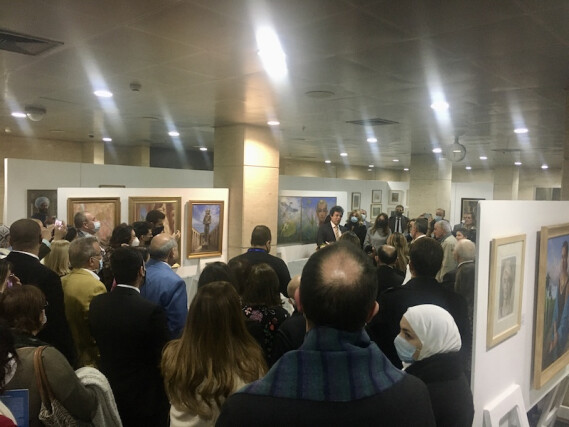
On Wednesday I attended a gallery opening at the Museum of Egyptian Civilization. St. John’s piano player, Dr. Farid, is also a painter (among other things, like a doctor). Apparently, he is pretty famous in Egypt. There was a big turn out. I was introduced to a friend of Dr. Farid’s, who was being followed around by cameras. It turns out the man was Zahi Hawass, a famous Egyptiologist, archeologist, and former Minister of State for Antiquities Affairs. Huh! There was a viola recital afterward. And, I thought I was supporting a parishioner…
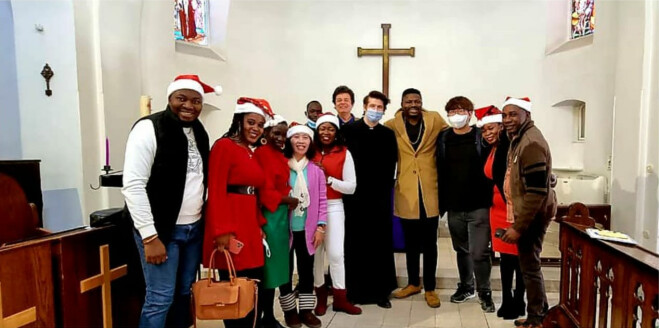
I celebrated and preached at our Thursday morning clergy Eucharist at the Cathedral, and, today, we had our Advent Lessons and Carols service at St. John the Baptist's. We would normally do services like this in the evening, but because we have a large number of refugees in our community who cannot safely travel at night we choose to have our services during the day so as to include everyone. Next week we are having our Christmas potluck after service so that we can celebrate Christmas as a community before the international crowd begins to disappear for the holidays, which has already begun.
Other ways you can help:
- Well Project (Gambella): Clean drinking water is a very serious need in Gambella. The Anglican Church hopes to begin a water ministry at Good Shepherd Cathedral, which is located on the outskirts of town and has no running water or electricity. This ministry would provide clean drinking water to the community around the Cathedral, but we need a lot of financial help to make this happen. A little goes a long way. If you’d like to understand the cost breakdown of this project, click here. To donate to this project, click here.


